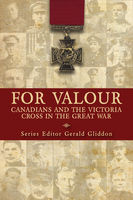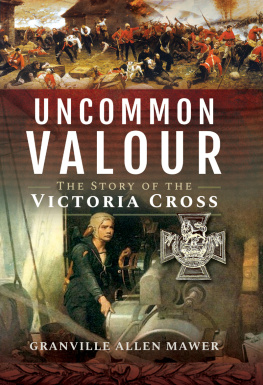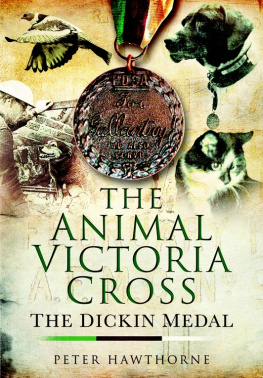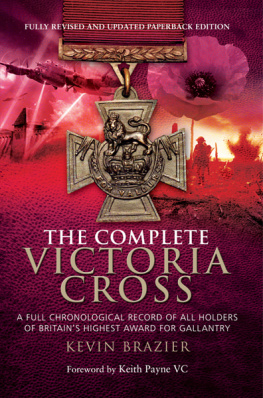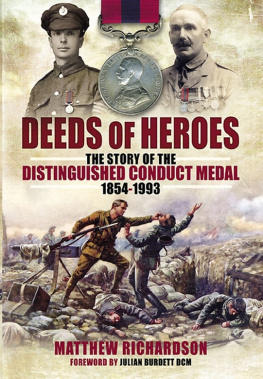First published in Great Britain in 2015 by Atlantic Books,
an imprint of Atlantic Books Ltd.
Copyright Gary Mead, 2015
The moral right of Gary Mead to be identified as the author of this work has been asserted by him in accordance with the Copyright, Designs and Patents Act of 1988.
All rights reserved. No part of this publication may be reproduced, stored in a retrieval system, or transmitted in any form or by any means, electronic, mechanical, photocopying, recording, or otherwise, without the prior permission of both the copyright owner and the above publisher of this book.
1 2 3 4 5 6 7 8 9
A CIP catalogue record for this book is available from the British Library.
Hardback ISBN: 978 1 843 54269 8
Paperback ISBN: 978 1 843 54270 4
EBook ISBN: 978 1 782 39638 3
Text design by Richard Marston
Printed in Great Britain
Atlantic Books
An Imprint of Atlantic Books Ltd
Ormond House
2627 Boswell Street
London
WC1N 3JZ
www.atlantic-books.co.uk
Preface
I may be accused of animus toward the recipients of the Victoria Cross, to whom I have referred. To this I have only to say that they are one and all personally unknown to me, and that I believe they are as much deserving of the honour as a great many men who have not obtained it, while, on the other hand, it is an unquestionable fact that there are hundreds of officers who have not got the order, who are much more entitled to it than those who have it.
LIEUTENANT-GENERAL H. J. STANNUS
Hundreds of books have been published about the Victoria Cross, most a mlange of train-spotting and hero worship, compendiums of deeds of derring-do about one or other of the 1,357 (to date) VC holders. and others very brief. All are carefully crafted, with a suitable veneer of authoritative objectivity, a smoothed-out uniform tone that adopts a lofty indifference to perhaps the most pertinent question: Did it really happen like that? A degree of scepticism is called for when reading these official accounts.
The military is well accustomed to this scepticism. In an effort to demarcate between someone who has done something remarkably brave and someone who merely fulfilled their duty, they have long had their own informal distinction between a good VC and a lesser one in order to winnow out the authentic hero. But what is an authentic hero? Is it someone who calculates the risks and nevertheless stifles their fears; or someone who is so angered that they lose all self-regard? Is it someone who merely does their duty? Or someone who did not act very courageously at all, but to whom granting a VC was a personal or political gesture? The annals of the Victoria Cross have a fair sprinkling of all three types.
There has always existed a written royal warrant, which sets out the terms on which VCs are to be awarded the rules. But, in a very British fashion, rules are one thing, behaviour often quite different. In the nineteenth century the VC rules were regularly adjusted to accommodate recipients that some establishment figure believed should be recognized by the award of a VC, but who, strictly speaking, were ineligible. Equally important was the need for that figure to possess the clout to push home a revision to the warrant. Senior military officers pushed through some extremely dubious VCs, motivated by personal or political reasons. In the twentieth century this trend for ignoring the terms of the royal warrant, and implementing informal rules of eligibility, was carried even further and given more systematic force, not through a conspiracy but instead by that very British tendency, the following of custom-and-practice. This served to warp still further the definition of exceptional courage, bending it to serve a broad political purpose: that of boosting national morale and encouraging others to emulate the selected act, while simultaneously tightening distribution of the VC significantly, and in ways that utterly diverged from what was laid down in the royal warrant. This book asks how it is that, over more than a century and a half, the VC has mutated from its no doubt flawed but remarkably open and democratic origins, to become the tightly controlled, rather secretive, and undemocratic honour it has become today.
The kind of behaviour that is necessary to gain a VC today is not so much courage as madness; how else to describe a situation where those put forward for a VC are required to have risked a 90 per cent chance of death? When it was first created, the VC went to (usually) brave men. Today it still goes to brave men, but men who are carefully scrutinized for how their story will be judged by the media, assessed to determine if they are the right character, and who are generally investigated far beyond their deeds in battle. Today, men are never chosen for a VC nomination by their fellows, even though they still have the right to do so. Women and civilians are also excluded, even though their eligibility is clearly stipulated in the most recent (1961) royal warrant. This book explores the anomalies, contradictions, injustices and absurdities that infuse the history of this deeply important symbol of British courage, national stoicism and patriotic pride. Ultimately, the distribution of the Victoria Cross is shaped by subjective decisions that intrude all along the route between the act of courage and the final pinning of the honour to a tunic. Courage possibly was never enough; it certainly is not today.
That the VC has deep symbolic meaning for British society cannot be doubted. Not only has the VC played a bit part in thousands of memoirs, novels, plays and poems, featured on postage stamps, in a nineteenth-century board game, in musical compositions, and even on railway engines. associative icons in the British mind that is attached to war this cheap little cross represents ultimate courage, as the poppy stands for ultimate sacrifice. The VC, as with the poppy, has thoroughly embedded itself in the psyche, not just of Britain but also that of Commonwealth nations.
To win a VC today is an astonishing rarity which, given we have just been engaged in a war of considerable ferocity lasting thirteen years, is remarkable. You need first of all to be lucky enough to find yourself in a situation where extreme courage is required, and prove yourself capable of demonstrating that degree of courage. Then you need to have the good fortune that your courageous act is noticed by a superior even better, two superiors. After that, you must hope that your superiors are capable of writing up your brave deed in compelling prose neither too simple nor too flowery, as the first will attract indifference and the second suspicion. It gets more difficult beyond that stage. You then need to be lucky enough that the write-up of your action gets passed upwards, and is not rejected by one or other higher officers through a chain of ever-more stringent oversight. If you are


